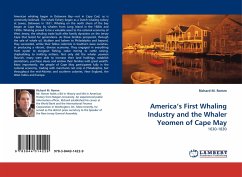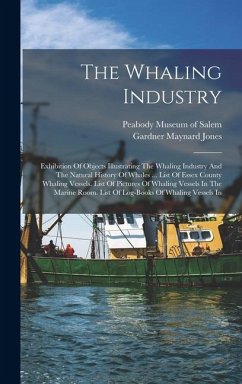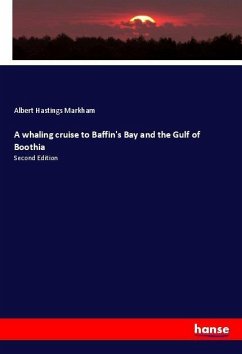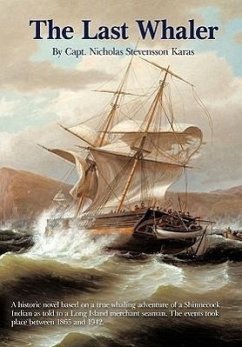
America''s First Whaling Industry and the Whaler Yeomen of Cape May
1630-1830
Versandkostenfrei!
Versandfertig in 6-10 Tagen
32,99 €
inkl. MwSt.

PAYBACK Punkte
16 °P sammeln!
American whaling began in Delaware Bay not in Cape Cod, as is commonly believed. The whale fishery began as a Dutch whaling colony at Lewes, Delaware in 1631. Whaling on the north shore of the bay began at Cape May by whalers from Long Island in the 1680s and 1690s. Whaling proved to be a valuable asset to the colonial economy of West Jersey; the whaling trade built elite family dynasties on the Jersey Cape that lasted for generations. As these families prospered, through the sale of whale oil, blubber and baleen to Philadelphia and beyond, they succeeded, unlike their fellow colonists in Sout...
American whaling began in Delaware Bay not in Cape Cod, as is commonly believed. The whale fishery began as a Dutch whaling colony at Lewes, Delaware in 1631. Whaling on the north shore of the bay began at Cape May by whalers from Long Island in the 1680s and 1690s. Whaling proved to be a valuable asset to the colonial economy of West Jersey; the whaling trade built elite family dynasties on the Jersey Cape that lasted for generations. As these families prospered, through the sale of whale oil, blubber and baleen to Philadelphia and beyond, they succeeded, unlike their fellow colonists in Southern slave societies, in producing a vibrant, diverse economy. They engaged in everything from oyster to sturgeon fishing, cedar mining to cattle raising, shipbuilding to knitting mittens. Not only did the whaler yeomen flourish, many were able to increase their land holdings, establish plantations, purchase slaves and endow their families with great wealth. Most importantly, the people of Cape May participated fully in the colonial economy, trading with merchants not only in Philadelphia, but throughout the mid-Atlantic and southern colonies, New England, the West Indies and Europe.












